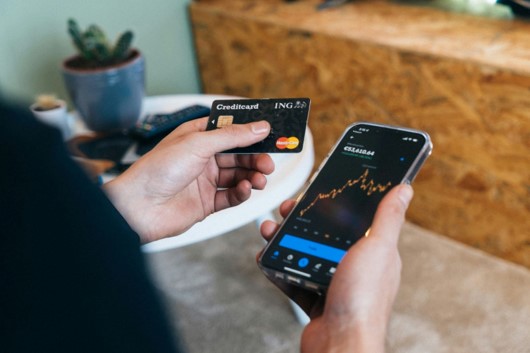Have you ever received a phone call asking for your personal or bank information? Scam calls, a popular form of phishing, come in various forms: from automated messages to people claiming to represent government bodies like the Social Security Administration or the IRS, as well as legitimate businesses.
The Federal Trade Commission reports a significant increase in these fraudulent activities, with imposter calls leading the charge: over September 2023, more than 175,000 unwanted call complaints were filed, 117,000 of which involved robocalls.
Due to the necessity of understanding these types of fraudulent practices, today we will explain the 6 common scam calls employed by scammers and share actionable tips to help you recognize and avoid falling victim to these frauds.
What are Scam Calls?
Scam calls are unwanted phone calls with fraudulent intentions, coming from unknown or suspicious sources. These calls can be made by individuals pretending to be “corporate representatives” or through automated calls, known as robocalls, which use recordings instead of a live person.
While some robocalls may offer legitimate information, like appointment reminders or flight cancellations, many are attempts to sell something or scams. Identifying a scam call is not always simple to do because:
- Scammers can manipulate caller ID information, making it seem as though the call is coming from a trusted bank or government agency.
- This technique, known as number spoofing, combined with the possible use of personal information obtained from previous data breaches, can make fraudulent calls seem legitimate.
How Did Scammers Get My Number?
Another common question is how scammers obtain phone numbers. They typically use software to simultaneously call or text a wide range of numbers, noting which ones are active. These active numbers are then marked as valid and may be sold to other criminals online.
Unfortunately, measures like making your number unlisted or registering it on a Do Not Call list have limited effectiveness in preventing scam calls. Scammers are persistent and may target individuals who have previously been victims of scams, offering false promises of recovering lost funds for a fee.
Types of Common Scam Calls
Understanding the various types of scam calls is crucial for protecting yourself from fraud. Here are some common scam calls to be aware of:
1-Impersonation Scams
These involve scammers pretending to be from your bank’s fraud department, the police, utility providers, or government departments like the FBI, IRS, or U.S. Customs and Border Protection. They might claim your account has been compromised and persuade you to transfer money into a ‘safe’ account, only to steal your funds.
2-Remote Access Scams
In these scams, the caller claims your account has been compromised and convinces you to download software onto your device, supposedly to gain access and resolve the issue. However, this software allows the scammer to access your device and steal your money.
3-Tech Support Scams
Similar to remote access scams, these involve scammers impersonating tech companies like Microsoft, claiming your device is infected with malware. They might ask you to download remote access software to fix the issue, giving them control over your device or tricking you into installing malware.
4-Investment and Financial Scams
Scammers make unwanted calls with fake investment opportunities promising huge returns. Any unsolicited financial call trying to sell you a product should be considered a scam, especially if the official bank’s sources don’t promote those financial products.
5-Charity Scams
Following tragedies, holidays, or appeals for local causes, scammers may ask for donations over the phone in the name of organizations or individuals. Their materials may look authentic, but these are fraudulent attempts to collect money.
6-Cryptocurrency Scam
These scams involve a variety of scenarios, including government impersonators or fake utility companies. The scammer stays on the phone with you as you use a crypto ATM to buy cryptocurrency, then sends you a QR code with their digital address. Scanning this code transfers your cryptocurrency directly to them, resulting in a loss of funds.
Click here to discover how scam calls and other phishing scams are expected to rise in 2024.
How to Recognize Scam Calls?
Recognizing a scam call is crucial to protecting your personal and financial information. Scammers often employ various tactics to convince their victims, including making promising offers, appealing for donations to charitable causes, or saying they have a connection with government agencies.
They typically rush you, leaving little time to question the legitimacy of the call and pressuring you into making immediate decisions. However, here are some key warning signs of scam calls that you can take into account:
- Claims that you have been “specially selected” for an offer.
- High-pressure sales tactics and time-sensitive offers designed to rush you into action.
- Refuse to provide detailed information about the offer or business when questioned.
- Requests for you to “confirm” personal details that a legitimate organization would already have.
- Demands for payment through unconventional methods such as gift cards, wire transfers, or private couriers rather than secure channels like credit cards.
- Threats of legal action, arrest, or other serious consequences if you do not comply with their demands.
- False claims of malware on your computer and requests for remote login to “fix” the issue.
- Pretending to be a friend or relative in urgent need of money and pressuring you for quick help without giving you time to verify their story.
Always approach unsolicited calls with skepticism, especially those asking for personal information or immediate payment. If in doubt, hang up and contact the organization directly using verified contact details.

How to Avoid Scam Calls?
To safeguard yourself from scam calls, it’s essential to adopt several proactive strategies:
- Verify Legitimacy: Always verify the caller’s legitimacy by asking for details that a scammer wouldn’t know. Remember, legitimate lottery or raffle organizations will never ask for a fee to claim winnings. If you haven’t entered any such contests, be immediately suspicious of any related calls.
- Avoid Suspicious Apps: Keep clear of clicking on suspicious links or downloading third-party apps from unsecured websites. If you suspect your computer is compromised, contact a trusted technical support team instead of following instructions from an unsolicited call.
- Block Spam Calls: Ustilize your smartphone’s built-in features to block unknown callers, or consider using a call-filtering app to screen calls from unrecognized numbers.
- Note Details for Reporting: If you answer a call that seems fraudulent, hang up without providing any information. Make a note of the caller’s details, such as their name and phone number, for reporting purposes.
- Report Unwanted Calls: Report the incident to authoritative bodies. In the U.S., you can report scam calls to the Federal Trade Commission (FTC) through their Report Fraud site.
Additionally, registering your number with the National Do Not Call Registry can help minimize sales calls. Your phone service provider may also offer other call-blocking services.
- Engage with the Cryptoscam Defense Network: Share your experiences and report details of your encounter, such as the scammer’s name or phone number, with our community. This collective effort helps limit scammers’ operations and protects others from becoming victims.
By taking these steps, you contribute to a larger effort to combat fraudulent activities. Also, reporting scams and sharing information are key to combating the efforts of scammers and keeping the community safe.
Conclusion
With the rise of scam calls, AI technologies have greatly improved scammers’ abilities, helping them to easily imitate the voices of known people, making fraudulent calls harder to identify.
Besides that, according to Truecaller, Americans receive an average of 1.9 billion unwanted calls each month, with each call lasting just over 4 minutes. This short duration often gives scammers enough time to confuse their victims, taking advantage of their inability to quickly recognize unwanted communication.
At Cryptoscam Defense Network (CDN) we teach you how to spot and evade complex scams through extensive resources, educational content, and a supportive community. CDN leads the charge in combating scam calls, empowering individuals with essential tools and knowledge.
We Want to Hear From You!
The fight against cryptocurrency scams is a community effort at Crypto Scam Defense Network, and your insights are invaluable. Have you encountered a scam, or do you have questions about navigating the complex world of digital currency? Maybe you have suggestions or want to share your story to help others. Whatever your experience, we’re here to listen and support you.
Reach out to us at hello@cryptoscamdefensenetwork.com. Share your stories, ask questions, or make comments. Your voice is crucial to building a resilient and informed community. Together, we can improve our defenses and promote a safer digital space for all.
Be a part of the change. Your story matters.
Photos via Pexels.







